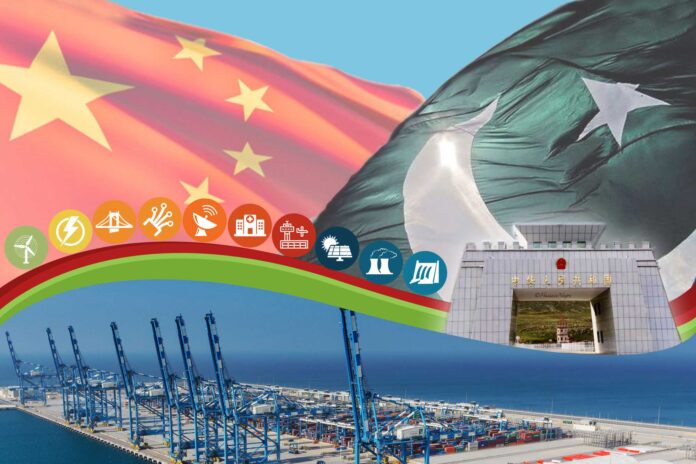ISLAMABAD: A Chinese Embassy spokesperson said on Wednesday that the total loans for the China Pakistan Economic Corridor (CPEC) projects were about $5.8 billion, which accounted for 5.3 per cent of Pakistan’s total foreign debt.
The loans would be returned in 20-25 years with an interest rate of approximately 2pc, he added.
The comments came from the Chinese Embassy official in response to the criticism of CPEC by US Assistant Secretary of South and Central Asian Affairs Alice Wells.
“Having no burden on Pakistan, the repayments will start in 2021, with annual reimbursements of about $300 million,” the spokesman maintained. “As China has never forced other countries to pay debts, it wouldn’t be making unreasonable demands on Pakistan.”
Regarding the so-called debt controversy, the spokesman quoted the statistics of the State Bank of Pakistan (SBP), saying the total foreign debt of Pakistan was $110 billion and that the global lenders, including the Paris Club and the International Monetary Fund (IMF), were in fact the largest creditors of Pakistan.
“The US keeps fabricating the so-called debt story, their mathematics is bad, and their intention is worse. We take strong exception to US interference into Pak-China relations and negative remarks on CPEC,” the spokesperson said.
He continued that China would be happier to see the US develop its relationship with Pakistan, but it strongly opposed the US interference in the CPEC framework.
“We noted that Alice Wells gave negative remarks on CPEC again. The comments hold nothing new, but the same cliché in her November 2019 speech, which has been repeatedly rejected by China and Pakistan.
“However, the US side still ignores the facts and is obsessed with the story it made for CPEC,” the spokesperson said.
He said, “Although you can never wake up a person who’s pretending to be asleep, we have to make our position clear and reject the negative propaganda by the US.”
Highlighting the so far pace of work on CPEC projects, the spokesperson said China and Pakistan have been firmly committed to the principles of mutual consultation and cooperation for shared benefits.
“Major progress has been achieved in the past 5 years, with 32 projects achieving early harvests,” he said, adding that China had significantly improved local transportation infrastructure and power supply, created over 75,000 jobs directly and contributed one to two per cent of the GDP growth in Pakistan.
“Under the CPEC framework, every project is equally discussed, carefully studied and jointly implemented by both countries. The Chinese government always requests its companies to operate according to local laws and regulations. All Chinese companies joining the CPEC enjoy an international reputation.
“All projects strictly follow the market-oriented and internationally accepted business model, adopt state of the art technology and strict environmental protection standards. The entire process is open and transparent and is in line with the international norm.
“We keep in touch with the relative accountability agencies of Pakistan and it is agreed that the CPEC is clean. The US holds a stick of sanction all over the world blacklists this and that country, but it is not for the global economy, just ways to serve its own political purpose.”
Commenting over the railway infrastructure up-gradation project of ML-I, the spokesperson said the project’s initial design was jointly accomplished by the China Railway No 2 Bureau, the National Engineering Services Pakistan Limited (NESPAK), and the Pakistan Railway Advisory & Consultancy Services Ltd (PRACS).
“The project was launched in 2016, and the initial design was submitted in May 2017. In April 2019, it successfully passed the initial design review, organized by Pakistan Railways (PR), of the complex including Mott McDonald Pakistan (MMP), Canarail and the Crimson. As the project hasn’t yet been approved, the amounts of the project will be adjusted according to the actual condition and the needs of Pakistan.”
“After finalizing the project design, a bidding process would be initiated in accordance with international practice.”
























